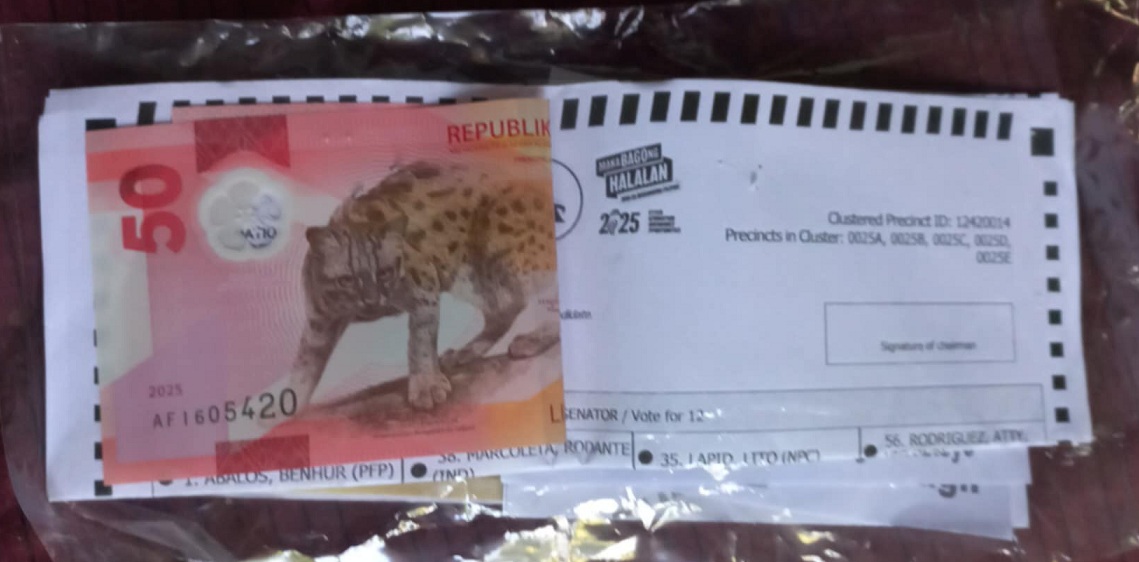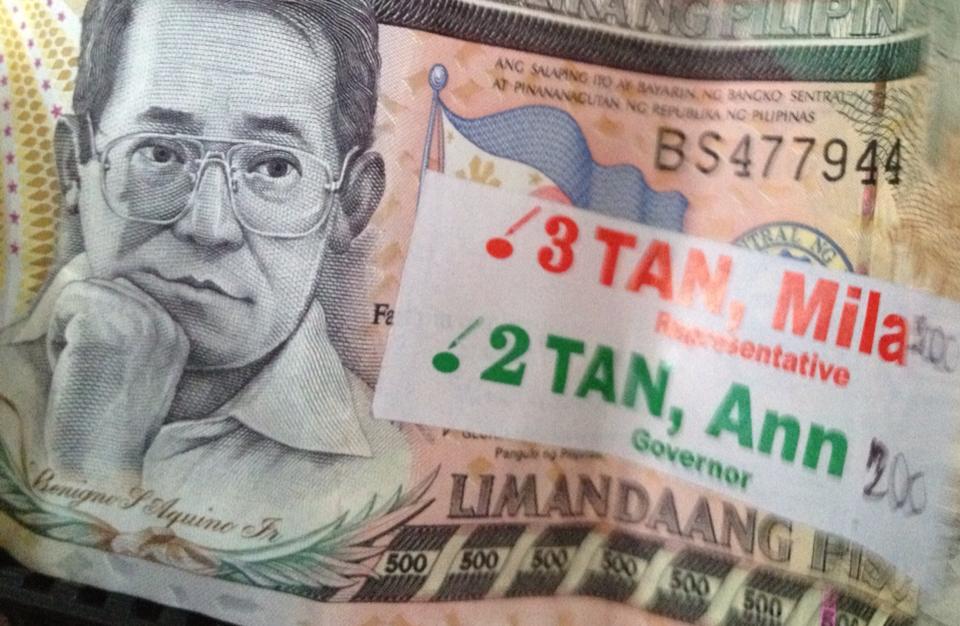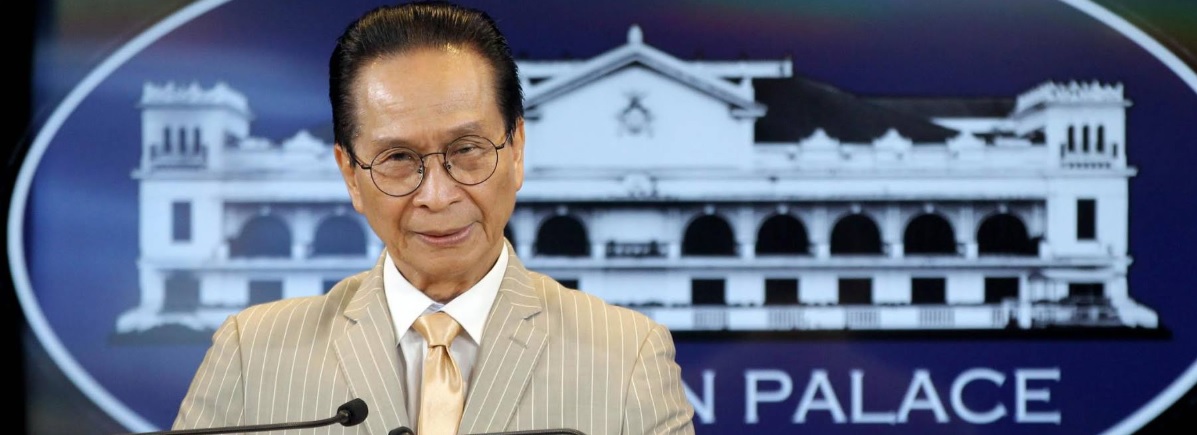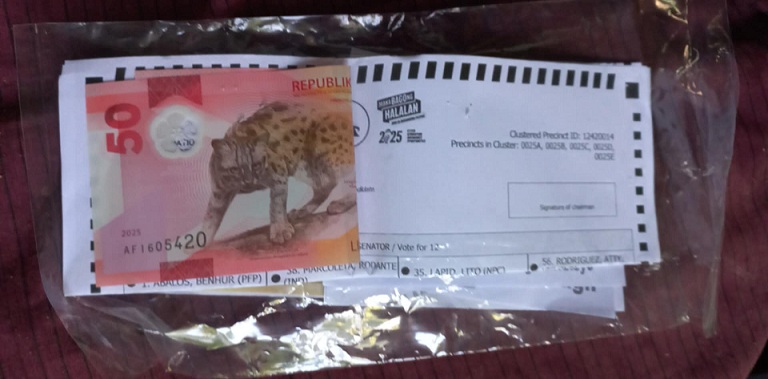
Electoral campaigns have enlivened and brought more color and music to the fiesta month of May in Bohol, as candidates took turns in parading on the streets and playing catchy jingles to woo voters.
Loud snd clear even if it is passed on in whispers, is the information about cash for votes. “Gauwan-uwan na ba diha?” or “Is it raining over there?” The answer to that question is the most-sought information days before election day.
The local term is “inangayan” which refers to the distribution of cash or goods by political candidates to secure votes. How much is the going rate?
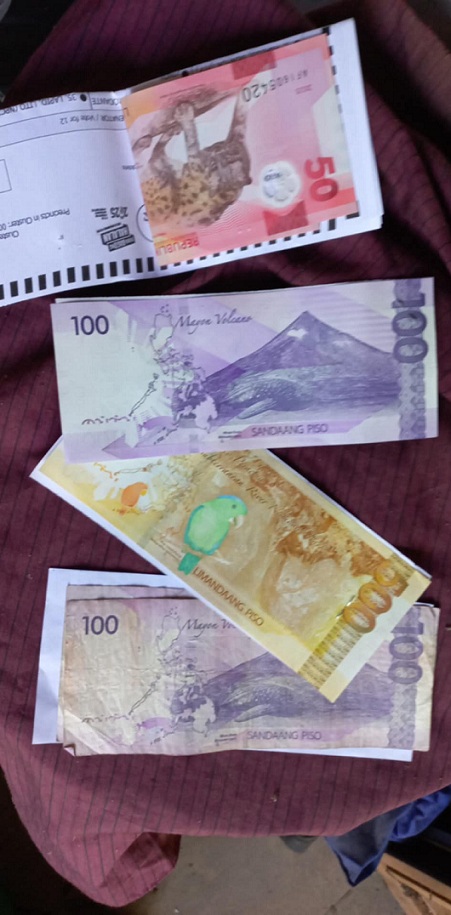
An incumbent candidate for Congress has doubled the cash given by his opponent to ensure victory from P500 to P1,000 per vote, many recipients attest. For some, “the vote is given to the highest bidder,” says another recioient, who refused to be named.
A 2022 survey (HNU) revealed that approximately 69% of voters in Bohol had received money from candidates during the May 2019 elections. The amounts varied, with some voters receiving as little as P150, while others were offered up to P5,000 per household, especially closely contested areas. This widespread practice not only distorts the electoral process but also deters qualified individuals without financial backing from running for office, according to Bishop Abet Uy of the Diocese of Tagbilaran.
Like many provinces in the Philippines, Bohol grapples with poverty. While specific figures for 2023 are not readily available, historical data indicates that a substantial portion of the population lives below the poverty line. This economic vulnerability makes residents more susceptible to the allure of immediate financial relief offered by vote-buying candidates. For many, the promise of cash or goods in exchange for a vote can be a compelling incentive, overshadowing considerations of efficient public service and good governance.
“But if you accept cash for your vote, don’t expect meaningful projects to come from the winning politician,” truck driver Adrian Ollanas muttered in Boholano.
“How I wish money will not be used to buy votes during elections, so that we can choose real leaders,” a tricycle driver in Maribojoc sighs in Boholano.
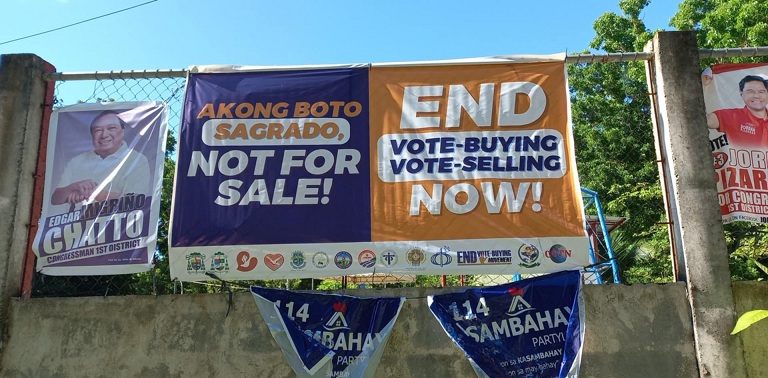
The Catholic Church, particularly through the leadership of Bishop Alberto Uy of the Diocese of Tagbilaran, has been at the forefront of efforts to combat vote-buying in Bohol. Bishop Uy has consistently condemned the practice, describing it as “destructive” and a barrier to electing qualified leaders. He emphasizes that vote-buying leads to the election of unqualified individuals and perpetuates a cycle of corruption, as politicians often seek to recover their expenditures through illegal means once in office.
In 2016, the Diocese of Talibon launched the Diocesan Action towards Good Governance (DAMGGO), a campaign aimed at educating voters about the moral implications of selling their votes. The initiative included motorcades and community outreach programs, with the slogan “Kon imo ming paliton, dili ka namo pilion!” (If you try to buy our votes, we will not choose you!). This campaign sought to instill a sense of civic responsibility and integrity among the electorate.
More recently, in 2024, Father Darwin Gitgano of Valencia town vowed to prosecute vote buyers in the upcoming elections. He organized a team of volunteers to monitor vote-buying activities and enlisted the help of lawyers to draft complaints against offenders. This proactive approach underscores the local Church’s commitment to ensuring free and fair elections in the province.
As the 2025 elections approach, Bohol stands at a crossroad. The province can continue down the path of transactional politics, where votes are exchanged for cash and goods, or it can embrace a future where elections are determined by the merit and integrity of candidates.
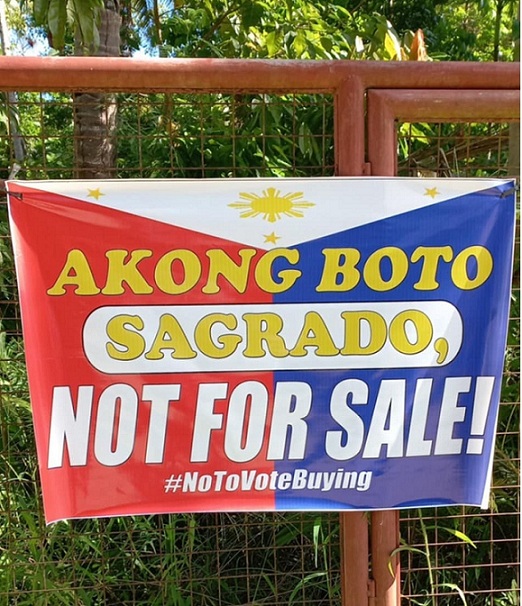
Political families
The dominance of political families is dominant in Bohol’s landscape across its three congressional districts, as well as in a number of towns.
In the first district, incumbent Representative Edgar Chatto, a member of the National Unity Party, is seeking a third term after securing 70.95% of the vote in 2022. He faces a formidable challenge from John Jeesnell Yap, former three-term Tagbilaran mayor who has a strong network of followers, and from Marybelle de la Cerna, widow of former OIC Governor Victor de la Cerna, who is attempting a political comeback after a previous loss to Chatto, and lawyer Jordan Pizzaras.
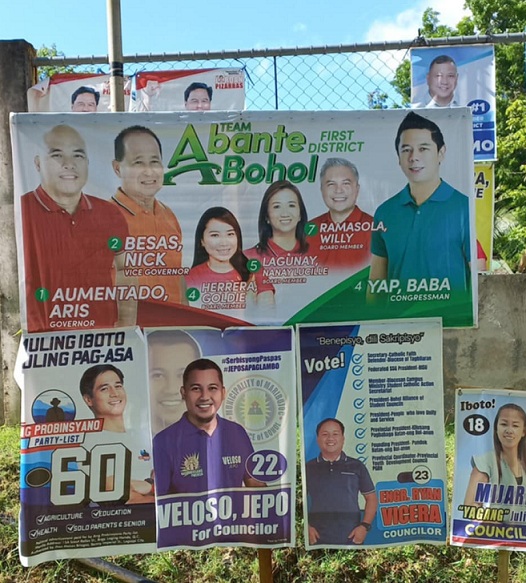
Second district Maria Vanessa Cadorna-Aumentado, known as Vanvan, is seeking re-election under the Lakas-CMD party. She is the wife of former Representative Erico Aristotle Aumentado, highlighting the entrenched political influence of the Aumentado family in the region. The Bohol governor shifted from his old political party NPC to PFP, the party of Pres. Ferdinand Marcos Jr.
Third district Representative Kristine Alexie Besas-Tutor is vying for a third term, while her husband outgoing Candijay town Mayor Christopher Tutor, is running for vice mayor. Their combined political influence underscores the Tutor family’s stronghold in the third district. Other candidates include Makdo Castanares of the Liberal Party, but the Tutor family’s established presence and political alliances position them favorably in this race.
In Tagbilaran City, incumbent Mayor Jane Cajes Yap is challenged by city councilor Malvar Misael Atoy Torralba. Meanwhile, Vice Mayor Jose Antonio Veloso is seeking a political comeback against incumbent Adam Nelson Jala.
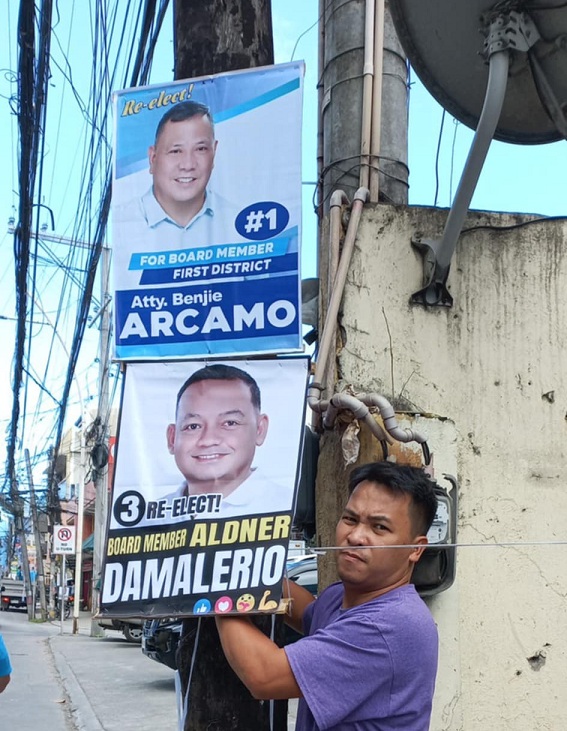
Beyond the congressional races, local elections in Bohol also reflect the predominance of political families.
In Loon town, former Mayor Tomas Cesar Lopez is making a comeback bid, supported by his vice mayoral candidate Dodong Literatus. Incumbent Mayor Elvi Relampagos is term-limited, paving the way for Lopez’s return.
In Inabanga town, the Jumamoy family continues its political legacy, with Jono Jumamoy running for mayor and his mother, Roygie Jumamoy, seeking re-election as vice mayor. Their entrenched political presence in Inabanga suggests a likely continuation of their leadership.
In Trinidad town, Vice Mayor Fernando Erio, backed by Representative Vanvan Aumentado, is running for mayor, signaling a shift in local leadership aligned with the Aumentado political network.
Yellow category
The Commission on Elections (Comelec) has placed six towns and Tagbilaran City in Bohol under the “yellow” category of the election watchlist.
The six towns are Buenavista, Tubigon, Inabanga, Trinidad, Ubay, and San Miguel.
Comelec 7 earlier announced that there are 15 areas in Bohol and Cebu that have been placed under the “yellow” category due to election-related incidents.
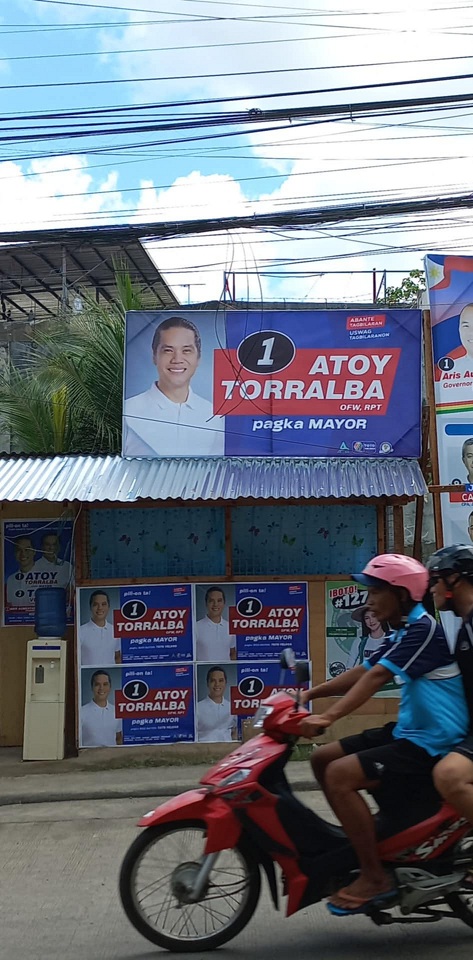
In Cebu, the areas are Daanbantayan, Balamban, San Fernando, Dumanjug, Argao, Dalaguete, Mandaue City, and Cebu City, as reported by Philippine Information Agency-Bohol.
“Areas placed under yellow category are those with history of election-related violence in the last recent elections,” explained Maj. Christopher Fernandez, Bohol Police Provincial Office (BPPO) operations officer, during the final Provincial Command Conference of the Provincial Joint Security Command Council.
Aside from this, the areas also indicate intense political rivalry.
“(These areas are also) with intense political rivalry, which spark division among local leaders that has since raised tensions that could threaten the peace and security,” said Fernandez.
The Philippine National Police, Armed Forces of the Philippines, Philippine Coast Guard, and Bureau of Fire Protection have deployed uniformed personnel in the “yellow” areas in the province to help maintain the peace and order.
More than 1,000 personnel from the Philippine National Police have been deployed to help secure the voting centers.
“This as the Philippine National Police in Bohol commits 1,526 of its personnel for election deployment in Bohol, to cover on a two per voting center assignment,” Fernandez said.
